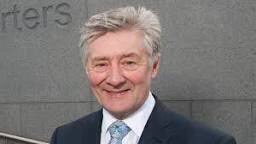The government’s proposed counter-extremism bill risks damaging the fight against terrorism, says Greater Manchester’s Mayor and Police and Crime Commissioner.
Speaking at a national counter-terrorism conference hosted by Salford University today, Tony Lloyd described how agencies across Greater Manchester, including local authorities and the police, are working with local communities and local people to challenge extremism and build stronger, cohesive communities.
However, the Government’s proposed legislation, outlined in the Queen’s Speech last week, risks alienating entire communities.
“It is Parliament who must define when people go beyond freedom of speech and encourage extremism but as it stands this proposed Bill puts the onus on the police and other agencies to make that call. It should not be up to the police to decide what constitutes acceptable and unacceptable comment in our society,” said Tony.
“I stand with faith, community and police leaders who have expressed deep concerns about the proposed legislation. There is a narrow balance between challenging individuals and groups and alienating entire communities. This Bill risks crossing that boundary, eroding hard won trust and alienating communities.
“We are doing a lot of work across Greater Manchester to embed community trust in our police and local authorities, so we can continue to work together to challenge violent extremism, keep our streets safe and build stronger, more cohesive neighbourhoods. I urge Government to listen and act on the concerns raised and ensure we are not taking a step backwards in our common fight against the terrorist.”
The proposed counter-extremism bill includes powers to ban organisations considered as extremist, introduce banning orders which would criminalise the intent to spread hate speech or promote terrorism, and allow local councils to shut down premises that have been assessed as being used to promote terrorism.
The interim Mayor’s comments echo those of Simon Cole, the police lead for the government’s Prevent anti-radicalisation programme – who says that the plans may not be enforceable and risk making police officers judges of what people can and cannot say – and former GMP Chief Constable Peter Fahy who, as part of an alliance 26 organisations and prominent individuals, has said these proposals will serve to alienate communities and undermine free speech.







